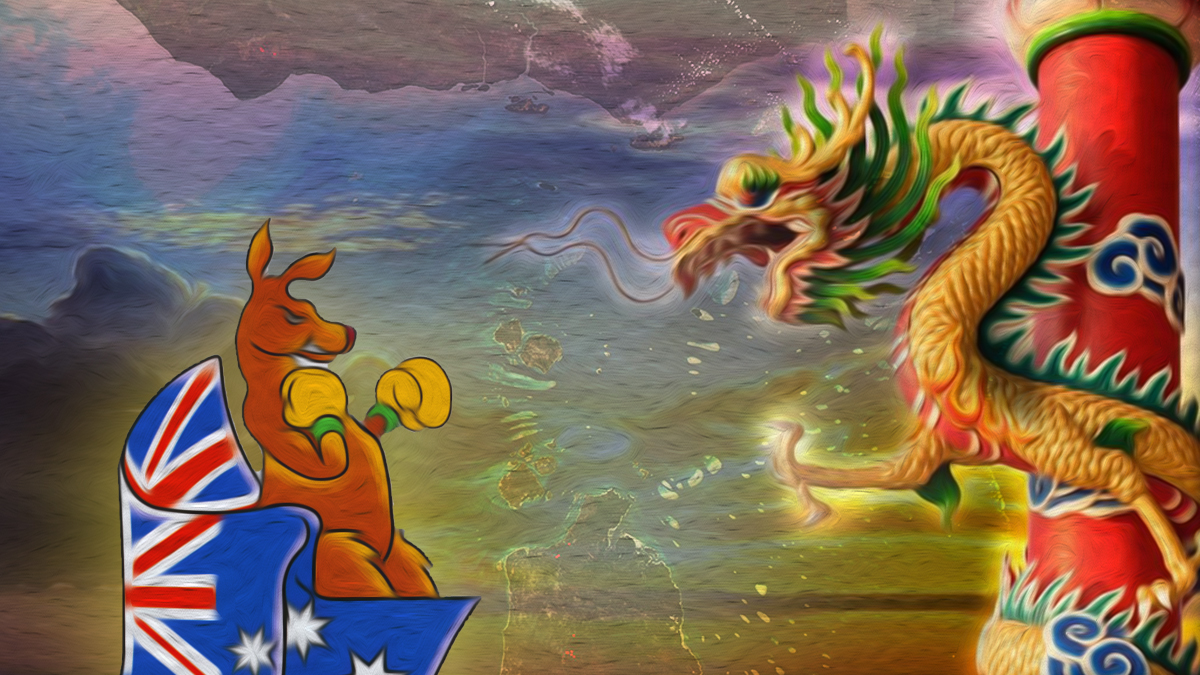If the Australia-China relationship for the past two years was a David-Goliath diplomatic war, a winner is slowly emerging. As in the Biblical fable, it’s not the giant.
China’s international image has been tainted enough by its lies and obfuscations over the origins of the Wuhan virus pandemic. Bullying and threatening a middle-power country that dared ask China to come clean has only harmed its image further.
Especially among its Asian neighbours.
Canberra has had a clear points victory over Beijing in the contested diplomatic reaction to AUKUS. Xi, speaking to a specially convened China-ASEAN summit, denounced AUKUS, although he didn’t mention it by name. Chinese spokesmen told us Xi was referring to AUKUS.
Xi implied a connection between Australia acquiring nuclear-powered submarines and the introduction of nuclear weapons into the region. He denounced AUKUS-style agreements while the Chinese foreign ministry spokesman denounced AUKUS by name, with attendant wolf warrior vitriol.
Beijing made a big effort to get ASEAN to take a stand against AUKUS. Beijing has failed.
China has notably failed even to win big support from two Asian nations with perhaps the most troubled relations with Australia, Indonesia and Malaysia.
Indonesia long prided itself as a non-aligned nation during the Cold War. It carries that stance as a kind of background noise to its 21st century diplomacy, so it might naturally be assumed to be opposed to a new superpower-driven alliance, AUKUS, in the region.
But Indonesia is even more suspicious of China.
So, when Indonesia says it is “deeply concerned over the continuing arms race and power projection in the region”, it’s looking more to its north than anywhere else.
Beijing is the only Asian nation engaging in an arms race. It has the second largest defence budget in the world and much of its defence spending is off budget and hidden. Its military spending is greater than that of the whole of Southeast Asia combined.
And for anyone concerned about nuclear weapons, Beijing is in the process of massively increasing its nuclear weapons stockpile, essentially quadrupling the number of nuclear weapons it has and diversifying the means it has to deliver them.
During ASEAN negotiations on a common statement responding to AUKUS, Vietnam was the strongest opponent of a condemnatory statement. The Philippines also backed AUKUS publicly.
As in almost all things, Canberra’s best friend in Asian diplomacy was Tokyo. And then Indonesian Defence Minister Prabowo Subianto came out in favour of AUKUS.
Meanwhile, Marise Payne, undoubtedly Australia’s most effective foreign minister in decades, has visited Malaysia, Cambodia, Vietnam and Indonesia, selling AUKUS regionally.
Now it seems that South Korean President Moon Jae-in may visit Australia. The South Korean relationship has been radically underdone by Canberra this past decade. If the President does visit is, it’s a significant sign of commitment and investment in the relationship by the South Koreans. Although a strong ally of the US, South Korea tends to be more intimidated by Beijing than does Japan, for fairly obvious reasons.
But it is a determined guardian of its own interests and has been a good friend of Australia. For the South Korean President to come here now, at the height of Beijing’s anti-Canberra bluster, is as close to an endorsement of AUKUS as you could get. Certainly it is a clear rejection of Beijing’s view of AUKUS.
The Australian
Samuel Huntington argued that China sees itself as the epicentre of an Asian, “Sinic” culture. It seems that its Asian neighbours are not inclined to similarly see themselves as “All Under Heaven”.
If anything, China has done Australia a favour. Its behaviour has opened a great many Australians’ eyes. Its trade sanctions have forced complacent Australian businesses to diversify and find other markets.
Most importantly, it has helped Australia, a middle power, rise to the ranks of pivotal powers in the early 21st century.
Please share this article so that others can discover The BFD

